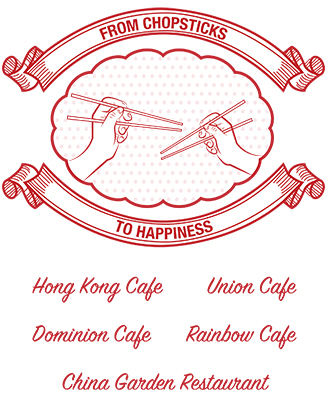
Canada is a diverse nation that welcomes immigrants from all over the world, including countries in Asia. Since the early 1900s, newcomers from China, Hong Kong and the Philippines have shared their culture with neighbours in Indian Head, often through cuisine. To acknowledge this positive influence and commemorate Asian Heritage Month, the Indian Head Museum shared information with Grasslands News about local restaurants and their proprietors.
“Chinese food restaurants in Indian Head hold a place in local culture as iconic as the P.F.R.A, the Rockets, Bell Barn, grain elevators and trains,” commented Robyn Jensen, Indian Head Museum vice president. “These eateries have been a cornerstone of small-town life across the province for decades.”
The Town of Indian Head was incorporated in 1902 and the first Chinese restaurant was established shortly afterwards. A notice in the ‘Leader Post’, dated July 13, 1909, states, “The new Hong Kong restaurant is now open in the Osment Block.” This would have been in the vicinity of the Grand Theatre, which was built by Arthur James Osment in 1904.
Research completed by a summer student at Indian Head Museum in 2021 indicates that another restaurant opened in 1926. The Dominion Café at 510 Grand Avenue was operated by Charlie Koo, who immigrated from China to Canada in 1902 and managed a restaurant in Sintaluta before opening the café in Indian Head. A menu from the 1930s shows that soup could be purchased for just 25 cents, and a steak with bread and butter and a coffee only cost 60 cents. Koo was hospitable, providing accommodations for members of the Rockets baseball team in the second-floor apartment. The athletes who came to Canada from the United States felt welcome and were well-fed.
An aura of mystery surrounds another restaurant proprietor, Sam Sing who came to Canada from China in 1910. He opened a café in Indian Head the same year as Koo, but the second story of his business was used for a rather different purpose. He regularly hosted poker games in the upstairs room of Sam Sing Café that were attended by doctors, lawyers and politicians from Regina. Restaurant employees were required to serve the gamblers and watch out for the police. Sing is suspected to have been the leader of an illegal gambling ring that extended from Indian Head to the U.S. border. He travelled frequently and would return with sacks of coins to deposit at the local bank.
In 1947, Bing and Alice Wong moved to Indian Head from Prince Albert and purchased the Sing Café. They renamed the restaurant Union Café and operated a thriving business for nearly 30 years. The book ‘Indian Head: History of Indian Head and District’ notes, “The Union Café was a regular haunt for all sports enthusiasts, players and spectators alike” and it “was a regular ‘hang-out’ for all teen-agers.” The café was known for butter tarts and apple turnovers baked by Alice, and the Top Hat Donut made by Bing. This was a plain cake donut topped with vanilla ice cream, chocolate syrup and a cherry. Other things that made the Union Café unique were the horse-shoe shaped counters installed in 1949 and large T-bone steaks served on yellow platters.
Another restaurant operated by Chinese immigrants was the Rainbow Café, located at 512 Grand Avenue next to what is now the Grace & Thyme antique store. Frank Yee and his wife Tun Lun Gee moved from China to Indian Head in 1952. They operated the café with their sons Ken and Joe until 1966 when they sold it to Ken’s brother-in-law Don Lee and his wife Tang.
Yet another restaurant was established in 1982 and it is still operating today. Barry and Vicky Yan from Hong Kong initially opened China Garden Restaurant at 430 Grand Avenue. They constructed a new building at 400 Grand Avenue in 1997 and continued to run the restaurant while raising their children Jennie and Calvin. Ten years later the Yans retired and moved to Vancouver. They sold China Garden Restaurant to Jimmy and Ely Lau. Jimmy had immigrated from China in 1990 and Ely moved to Canada from the Philippines in 1993. They both gained experience working at restaurants in Regina and Foam Lake. Jimmy also worked as a head chef in Calgary. Jimmy and Ely moved to Indian Head with their son Jordan and daughter Patricia in 2007, and the couple has continued to manage the restaurant since that time.
Many generations have enjoyed the culinary skills that enriched the Town of Indian Head. To acknowledge the contributions of these restaurants and their owners, Indian Head Museum recently commissioned Patricia Lau to design a commemorative t-shirt. The design features chopsticks and the words “From Chopsticks to Happiness.” Lau said it was an honour to create the design and she felt it was more significant than just making a clothing item.
“It was about encapsulating the rich history and cultural significance that these restaurants held for our community. I remembered the long hours spent in the kitchen, the laughter of patrons filling the dining area, and the sense of pride that came with being part of a business deeply woven into the fabric of our town,” Lau explained. “The chopsticks symbolize not only the culinary traditions of Chinese cuisine, but they represent generations of chefs who crafted delicious meals and nourished the community. The quote encapsulates the journey of these families to build a life in a new land. It highlights the happiness and satisfaction that comes from sharing one’s culture and cuisine with others.”
Lau added that including the names of each restaurant on the shirt was a way to demonstrate unity and cultural pride; “a testament to the enduring spirit of the community I am proud to call home.”
The t-shirts will be sold at the museum in time for Indian Head Parade Days, June 22 and 23.









